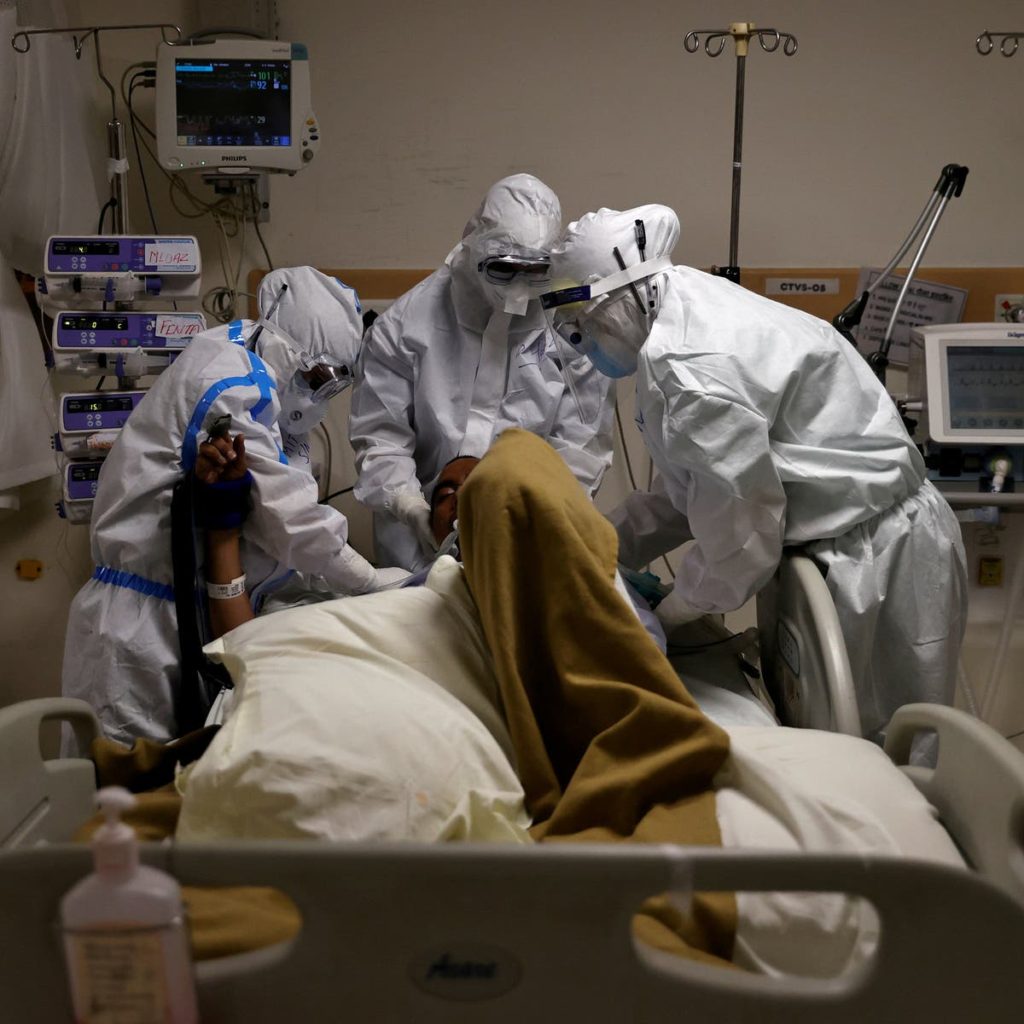
Caring for a coronavirus patient at a hospital in New Delhi on Thursday.Credit…Danish Siddiqui/Reuters
The coronavirus has infected more than 5.7 million people around the world and killed nearly 360,000, according to data compiled by The New York Times.
Yet even as the pace of new infections quickens — with nearly 700,000 new known cases reported in the last week after the pathogen found greater footholds in Latin America and the Gulf States — many countries are sputtering into reopenings at what experts fear may be the worst time.
In India, a nation of 1.3 billion people, doctors fear a lockdown that began two months ago and has deeply wounded the economy is being eased too soon. Migrant workers are reporting infections at an alarmingly high rate, leading to fresh outbreaks in villages across northern India. Public hospitals in Mumbai are so overwhelmed that patients have taken to sleeping on cardboard in the hallways.
Epidemiologists now project that India’s caseload — more than 165,000 as of Friday — could near a million in a matter of weeks.
“From a public health point of view, I do think the lockdown has brought the disease under control,” Dr. Ashish Jha, the director of the Harvard Global Health Institute. “But of course, as restrictions have lifted in the last week or 10 days, the number of cases has started to rise quickly.”
Elsewhere in Asia, a major concern is Indonesia, the world’s fourth most populous country, where the caseload has doubled since early May to nearly 25,000. Health experts say even that doubling reflects the limits of testing rather than the true number of infections, and they are bracing for runaway transmission.
Still, the Indonesian government has said that national coronavirus restrictions, already a scattershot effort, must be relaxed to save the economy.
And in the Philippines, President Rodrigo Duterte said on Thursday that he would ease lockdown rules in and around Manila, the capital, by June 1 — even as the country reported a single-day record of 539 new cases, bringing its total to nearly 16,000.
As Mr. Duterte urged people to move to a “new normal,” his critics predicted disaster.
“Reading the data available to us, it seems that we have not yet flattened the curve,” said Senator Risa Hontiveros, a Philippine opposition lawmaker. “Instead this easing of lockdown may expose thousands of metro Manila workers and residents to a new wave of community transmissions that will definitely overwhelm our already embattled health system.”




